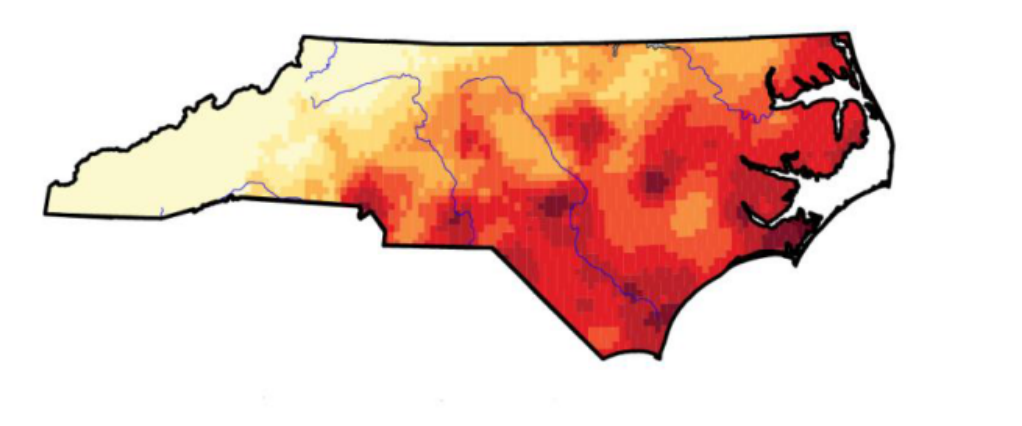
Science Report
The Air Quality Committee of the North Carolina Environmental Management Commission has voted to advance a proposed rule to reduce heat-trapping carbon pollution from power plants in the state.
The Southern Environmental Law Center on behalf of the nonprofit North Carolina Coastal Federation and Clean Air Carolina had petitioned the division to recommend to the Environmental Management Commission adoption of the rule. After the committee’s vote Tuesday, the petition now heads to the full commission for consideration during its special meeting July 13 on whether to move forward with adoption of the proposed rule.
Supporter Spotlight
“We filed this petition because North Carolina needs to take urgent action to reduce carbon pollution from power plants given the harm underway from climate change in our communities,” said Gudrun Thompson, an attorney with the Southern Environmental Law Center, in a statement. “This rule will push dirty coal generation off the power grid, protecting the people and communities of North Carolina from air pollution while moving our state toward a clean energy future.”
The law center noted that the effects of climate change are already affecting North Carolina, such as heavy rains and flooding from slow-moving storms and warmer and more humid days and nights.
“We’re already watching tropical storms form even though hurricane season just started,” said Todd Miller, executive director of the North Carolina Coastal Federation, which publishes Coastal Review. “It’s imperative to act to reduce carbon pollution so that our coast is less vulnerable to extreme weather, and this vote is a good first step in that direction.”
The law center said the proposed rule would help achieve Gov. Roy Cooper’s goal of reducing carbon dioxide emissions from the power sector by 70% by 2030 and reaching net zero emissions by 2050 by setting a declining limit on heat-trapping carbon dioxide emissions from power plants and having North Carolina join the Regional Greenhouse Gas Initiative, a cooperative effort among states from Maine to Virginia to cap and reduce power sector carbon pollution.
“Joining RGGI is a win-win for North Carolina’s economy, environment, and our health”, said June Blotnick, executive director of Clean Air Carolina. “Beyond cutting carbon dioxide emissions, states participating in RGGI have seen reductions in harmful co-pollutants such as nitrogen oxides and sulfur dioxide. Reducing and ultimately eliminating these dangerous emissions will greatly improve the health of communities surrounding power plants, communities that have often experienced the most harm from decades of environmental injustices. Our state must join RGGI to improve health outcomes for all North Carolinians and continue to work to protect our most vulnerable communities.”
Supporter Spotlight
The law center noted that states already participating in the initiative saw carbon dioxide emissions from power plants drop 47% over the last decade.







